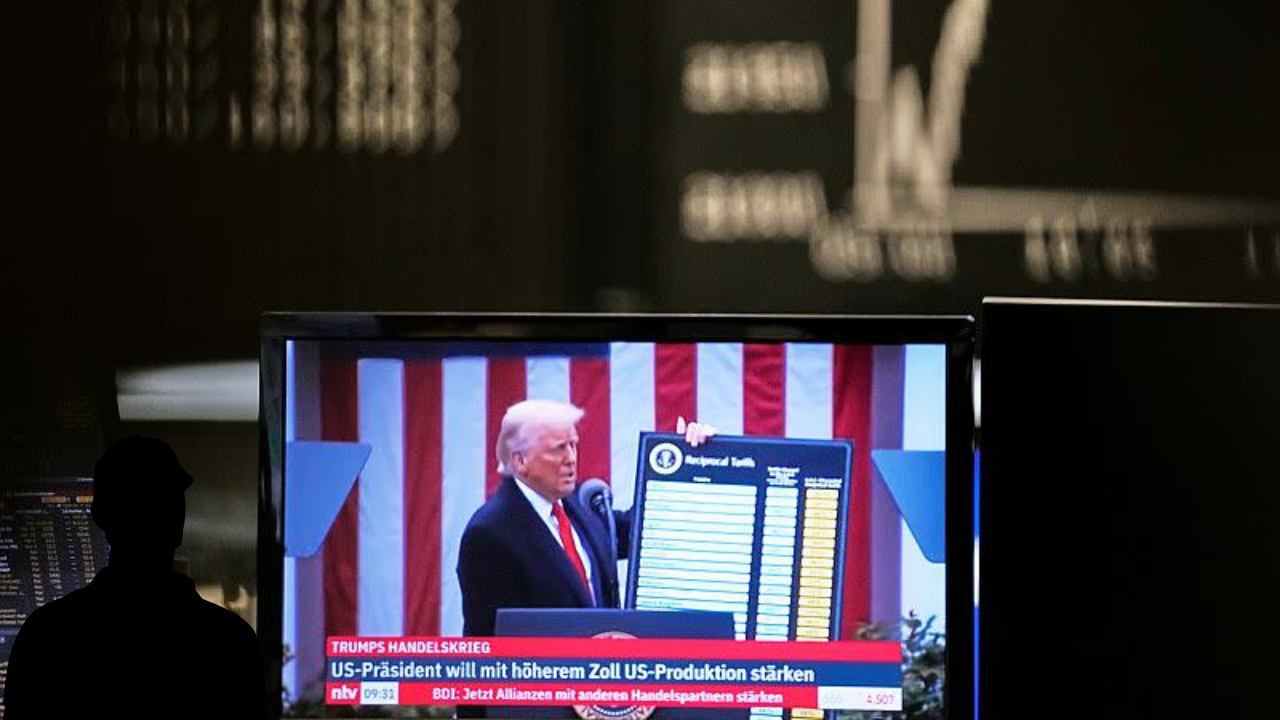
By: Rimi
Published on: Apr 14, 2025
European stock markets are poised for a bullish opening on Monday as investors react to the White House’s temporary exemption of electronics from reciprocal tariffs. However, President Donald Trump’s latest remarks on Truth Social have cast a shadow over the relief, signaling that tariffs on electronics could resume within months. This development injects fresh uncertainty into global trade dynamics, with markets oscillating between optimism and caution.
On Friday, the U.S. Customs and Border Protection (CBP) announced that electronic devices—including smartphones, computers, and semiconductors—would be exempt from steep tariffs imposed on imports from China (145%) and other countries (10%). The decision triggered immediate optimism across global markets, with tech stocks rebounding sharply. However, Trump swiftly countered this narrative on Sunday, insisting via Truth Social that “NOBODY is getting ‘off the hook’” and clarifying that electronics would instead be moved to a “different Tariff ‘bucket’” under the 20% Fentanyl Tariffs framework.
The President emphasized that the exemptions were not permanent, stating:
“There was no Tariff ‘exception’ announced on Friday. We’re taking a look at Semiconductors and the WHOLE ELECTRONICS SUPPLY CHAIN as part of the National Security Tariff Investigations.”
U.S. Commerce Secretary Howard Lutnick echoed Trump’s stance during an interview with ABC News, confirming that new tariffs targeting electronics “are coming in probably a month or two.” This conflicting messaging underscores the administration’s strategy to maintain pressure on trading partners while navigating domestic economic concerns.
China’s Ministry of Commerce responded cautiously to the tariff exemptions, labeling them a “small step” toward rectifying what it called the U.S.’s “wrongful imposition of unilateral tariffs.” A spokesperson urged the U.S. to abandon its “erroneous practice” of reciprocal tariffs and return to “equal dialogue.”
Analysts interpret China’s muted reaction as a tactical move to avoid escalating tensions ahead of potential negotiations. However, Beijing’s patience appears to be wearing thin, with officials privately warning of retaliatory measures if the U.S. follows through on renewed tariffs.
European equities surged in pre-market trading, with futures pointing to significant gains:
The euro also strengthened against the U.S. dollar, with the EUR/USD pair climbing above 1.04—a three-month high—before retracing slightly during Asian trading hours. Analysts attribute the dollar’s weakness to growing economic uncertainty and fears that aggressive tariff policies could stifle U.S. growth.
Carsten Brzeski, Global Head of Macro at ING, noted:
“Investors are betting that the tariff pause will provide temporary relief for EU exporters, particularly in tech and automotive sectors. However, Trump’s unpredictability means this rally could be short-lived.”
U.S. tech stocks are bracing for volatility as the tariff exemption’s temporary nature becomes clear. Apple, which derives over 20% of its revenue from China and relies heavily on Chinese manufacturing, saw shares plummet 22% in the weeks preceding Trump’s tariff pause. Last Wednesday’s historic rally—sparked by the 90-day exemption—offered a reprieve, but analysts warn of renewed pressure if tariffs resume.
Wedbush Securities analyst Dan Ives commented:
“Apple’s supply chain is a house of cards in this trade war. A 20% tariff could erase 3–3–4 per share from earnings, forcing price hikes or margin compression.”
Other tech giants, including Intel and Nvidia, also face risks due to their dependence on Asian semiconductor suppliers. The Nasdaq Composite’s 1.3% pre-market jump reflects cautious optimism, but sector-wide gains hinge on the outcome of the National Security Tariff Investigations.
Asian indices posted strong gains, led by Hong Kong’s Hang Seng Index (+2.42%), as China reported a 12% year-on-year surge in March exports. However, economists caution that the spike may reflect exporters rushing to ship goods ahead of anticipated tariffs.
Key Regional Performers (as of 5:20 am CEST):
Linda Liu, Chief Asia Economist at Macquarie Group, warned:
“This export boom is likely a sugar rush. Front-loading orders before tariffs hit could lead to a sharp slowdown in Q2, exacerbating China’s domestic demand challenges.”
The Trump administration’s National Security Tariff Investigations—slated to conclude by June 2025—will scrutinize the electronics supply chain, focusing on semiconductors, rare earth minerals, and 5G infrastructure. The probe could justify sweeping tariffs under Section 232 of the Trade Expansion Act, which permits levies for national security reasons.
Potential Outcomes:
Full Tariff Resumption: A 20% tariff on electronics imports, triggering supply chain disruptions and inflationary pressures.
Negotiated Compromise: Quota-based exemptions for allies like the EU and Japan, isolating China.
Extended Delay: Postponing tariffs until after the 2026 midterm elections to avoid economic backlash.
While European markets bask in short-term gains, Trump’s tariff threats loom large. Investors must weigh the interplay of geopolitics, corporate earnings, and central bank policies in this high-stakes environment. For now, the euro’s strength and equity rallies suggest guarded optimism, but the specter of renewed trade wars ensures volatility will dominate headlines in the coming weeks.
Comments
No comments yet. Be the first to comment!
Leave a Comment